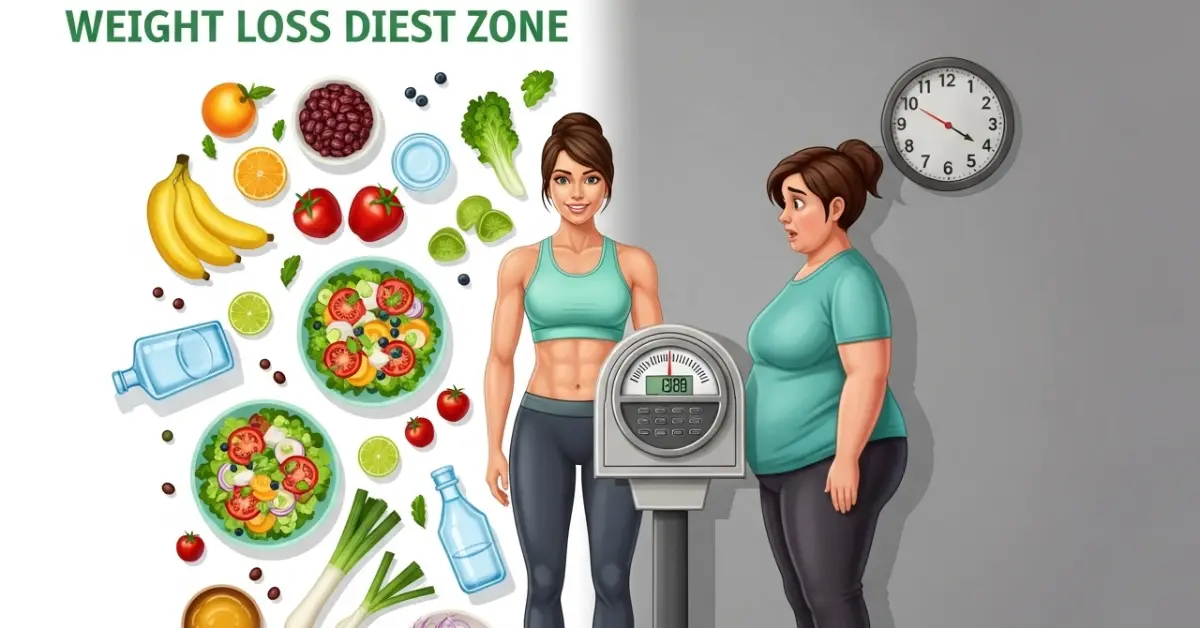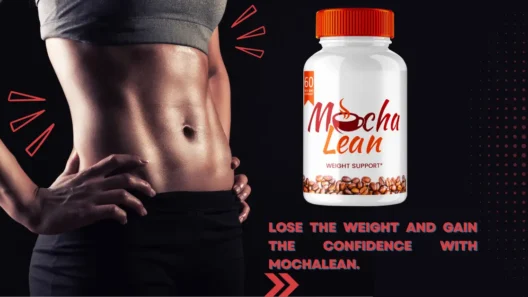Introduction – Weight Loss Is Harder Than Ever
In 2025, losing weight is no longer as simple as “eat less, move more.” Modern life has made weight management more complicated than ever before. Long working hours, food delivery apps, irregular sleep schedules, and constant stress all play a role in slowing down metabolism and making healthy choices harder to stick with.
At the same time, the internet is overflowing with conflicting diet trends — keto, intermittent fasting, carnivore, vegan, low-carb — leaving people more confused than informed. New supplements and quick-fix products launch every month, promising “instant results,” but most fail to deliver lasting benefits. This endless cycle of trial and error often leads to frustration, burnout, and yo-yo dieting.
Adding to the challenge, hormonal changes, sedentary lifestyles, and a general lack of movement have created an environment where fat gain happens faster and fat loss takes longer. Even people who try to stay consistent with gym workouts or calorie counting often see slower progress than expected.
The Modern Lifestyle Trap
Problem:
In 2025, more people are working from home than ever before. While this offers convenience, it also means long hours sitting in front of screens, reduced physical activity, and an overreliance on food delivery apps. Even those who manage to hit the gym for an hour a day spend the rest of their time sedentary, slowing metabolism and making weight loss far more difficult than expected.
Solution:
- Walk more throughout the day: Aim for 7,000–10,000 steps daily in addition to structured workouts.
- Take micro-breaks: Stand up, stretch, or walk for 2–3 minutes every hour to keep your metabolism active.
- Adopt active hobbies: Choose leisure activities like dancing, cycling, or weekend hikes instead of passive entertainment.
- Change your environment: Use standing desks or place reminders to move at regular intervals.
Small, consistent lifestyle tweaks can prevent long sedentary periods and help weight loss feel natural rather than forced.
Diet Confusion and Misinformation
Problem:
With endless diet trends — keto, intermittent fasting, vegan, paleo, and low-carb — it’s no surprise people feel overwhelmed. Every influencer and fitness blog seems to claim their method is the ultimate solution. This constant stream of contradictory advice causes frustration, making many people hop from one diet to another without long-term results. The outcome is often “yo-yo dieting” — losing weight quickly, then regaining it just as fast. This cycle damages metabolism, weakens motivation, and leaves people questioning whether weight loss is even possible.
Solution:
- Maintain adequate protein intake (1.2–1.5g/kg body weight) to support lean muscle and metabolism.
- Prioritize whole, minimally processed foods to feel full longer and control cravings.
- Include realistic cheat meals to prevent binge eating and make dieting sustainable.
A steady, science-backed approach is far more effective than chasing fad diets.
You can go and Know more about Weight loss product related content
Slow Metabolism and Hormonal Changes
Problem:
After age 25, many people notice that losing weight becomes slower even if their habits stay the same. Metabolism naturally declines with age, meaning the body burns fewer calories at rest. On top of this, hormonal changes — such as thyroid imbalances, insulin resistance, or conditions like PCOS in women — can make shedding fat even more difficult. These underlying issues often go unnoticed, causing frustration when diet and exercise alone don’t seem to deliver results.
Solution:
- Schedule regular health checkups to detect and manage conditions like thyroid dysfunction or insulin resistance early.
- Incorporate strength training to build lean muscle mass, which helps increase the body’s calorie-burning ability even at rest.
- Choose nutrient-rich foods high in fiber, omega-3 fatty acids, and antioxidants to support hormonal balance and metabolic health.
By addressing both medical factors and lifestyle habits, you can overcome metabolic slowdowns effectively.
Stress and Emotional Eating
Problem:
Modern lifestyles are filled with constant pressure from work deadlines, financial concerns, and personal responsibilities. This stress often drives people toward comfort foods high in sugar and unhealthy fats. Over time, this creates a cycle: stress leads to overeating, overeating leads to weight gain, and weight gain increases stress.
Solution:
- Practice stress-management techniques such as yoga, deep breathing, meditation, or even a short walk to calm the mind and body.
- Keep healthy snacks nearby — options like nuts, fruits, or protein bars can satisfy hunger without triggering junk food binges.
- Prioritize quality sleep (7–8 hours nightly) to regulate appetite hormones like ghrelin and leptin, reducing late-night cravings.
Breaking the link between stress and eating is essential for long-term weight control and emotional well-being.
Stress and Emotional Eating
Problem:
Modern lifestyles are filled with constant pressure from work deadlines, financial concerns, family responsibilities, and social commitments. This continuous stress often drives people toward comfort foods that are high in sugar, unhealthy fats, and empty calories. Over time, these eating habits can become a coping mechanism for emotional discomfort, leading to overeating and weight gain. Additionally, when the body is stressed, it releases cortisol — a hormone that not only increases appetite but also encourages fat storage, particularly around the belly area. This creates a vicious cycle: stress leads to cravings and overeating, overeating leads to weight gain, and the resulting body changes increase stress and anxiety, making it even harder to maintain a healthy lifestyle.
Solution:
- Practice stress-management techniques such as yoga, deep breathing exercises, meditation, or short walks throughout the day to calm the mind and body.
- Keep healthy snacks handy — options like nuts, fruits, or protein bars can satisfy hunger while avoiding calorie-dense junk foods.
- Prioritize quality sleep (7–8 hours per night) to balance appetite-regulating hormones like ghrelin and leptin, reducing late-night cravings.
Addressing emotional eating is crucial for sustainable weight management and improving overall mental well-being.
Building a Sustainable Diet Plan for 2025
Weight loss shouldn’t feel like punishment or restriction — it should be about creating a balanced, sustainable lifestyle that you can maintain long-term. Extreme diets or fad approaches may show quick results but often lead to burnout and yo-yo weight gain. Instead, focusing on a daily eating plan that nourishes your body while keeping you satisfied is key to long-term success.
Here’s a simple example of Weight loss daily diet plan that works:
- Morning: Start your day with a high-protein breakfast like eggs, oats, or a protein smoothie. This helps stabilize blood sugar and keeps you full for longer.
- Midday: Include lean protein, vegetables, and complex carbs such as rice, quinoa, or sweet potato to fuel your energy levels.
- Evening: Opt for a healthy snack like nuts, yogurt, or fresh fruit to curb cravings without adding empty calories.
- Dinner: Have a light meal focused on protein and vegetables, avoiding heavy carbs late at night.
- Pro tip: Stay hydrated by drinking 2.5–3 liters of water daily to support digestion, metabolism, and keep hunger in check.
Following a structured plan like this reduces cravings, supports metabolism, and makes weight loss feel manageable rather than stressful.
Supplements: Help or Hype?
Problem:
In 2025, the weight loss market is flooded with countless supplements promising rapid fat loss, “miracle” metabolism boosts, or appetite suppression. From fat burners to herbal extracts, every brand claims to be the ultimate solution. However, most supplements fail to deliver lasting results when used alone. Many people invest time and money in products without addressing the underlying lifestyle issues — diet, exercise, stress, and sleep — leading to disappointment and frustration.
Solution:
- Look for clinically-backed ingredients: Choose supplements containing proven components like green tea extract, L-carnitine, or probiotics that can support metabolism or digestion naturally.
- Use supplements as a support, not a replacement: Combine them with balanced nutrition, regular exercise, and lifestyle changes for best results.
- Consult a professional: Before starting any supplement, speak with a nutritionist or healthcare provider to ensure safety, especially if you have medical conditions or are taking medications.
- Focus on quality over quantity: Avoid products that promise rapid, unrealistic results.
When used wisely, supplements can enhance weight loss efforts and fill nutritional gaps, but they are never a substitute for a healthy, consistent lifestyle.
Consistency Over Perfection
Problem:
Many people approach weight loss with a mindset of perfection — they aim for strict diets, rigorous workouts, and rapid results. When progress is slower than expected, motivation drops, leading to frustration, cheating, or giving up entirely. This “all-or-nothing” approach is one of the main reasons long-term weight management fails. Weight loss is not about short-term dieting; it’s about creating habits that last and making gradual, sustainable improvements.
Solution:
- Track progress weekly, not daily: Daily fluctuations in Weight loss are normal and can be misleading. Weekly tracking helps you focus on overall trends rather than temporary changes.
- Focus on non-scale victories: Celebrate improvements in energy levels, sleep quality, mood, strength, and endurance and Weight loss. These indicators show your body is becoming healthier even if the scale moves slowly.
- Celebrate milestones without derailing your plan: Reward yourself with small treats or activities instead of abandoning your progress.
Consistency is the true key to success. Small, steady actions performed every day compound over time, resulting in sustainable weight loss, improved health, and a confident, balanced lifestyle. Remember, gradual progress beats rapid, unsustainable efforts every time.
Conclusion – Turning Struggles Into Success
Weight loss in 2025 comes with a unique set of challenges. From sedentary lifestyles and long work hours to diet confusion, slow metabolism, hormonal shifts, stress, and emotional eating, many people feel overwhelmed and frustrated. Weight loss It’s easy to get trapped in cycles of fad diets, extreme workouts, or “quick-fix” supplements that promise instant results but rarely deliver sustainable outcomes. These struggles are real, but they can be overcome with the right approach.
The key is to understand the obstacles and address them with practical, science-backed strategies. Equally important is adopting a long-term mindset — focusing on consistency rather than perfection, celebrating non-scale victories, and making gradual, sustainable improvements.
Weight loss management should be seen as a journey, not a short-term goal. With patience, persistence, and the right guidance, anyone can overcome these challenges and achieve lasting results. By turning struggles into actionable solutions, you can reach your ideal weight while improving overall health and well-being — and finally break free from the cycle of frustration and disappointment.
#WeightLoss2025,#FitnessJourney,#HealthyLifestyle,#WeightLossStruggles,#MindfulEating,#Wellness2025,#FitnessMotivation,#WeightLossTips,#OvercomingChallenges,#HealthyLiving,#FitnessCommunity,#HolisticHealth,#SustainableWeightLoss,#MentalHealthAndFitness,#HealthyHabits,#WeightLossJourney,#WellbeingMatters,#HealthGoals2025,#BalanceNotPerfection,#TransformYourLife








